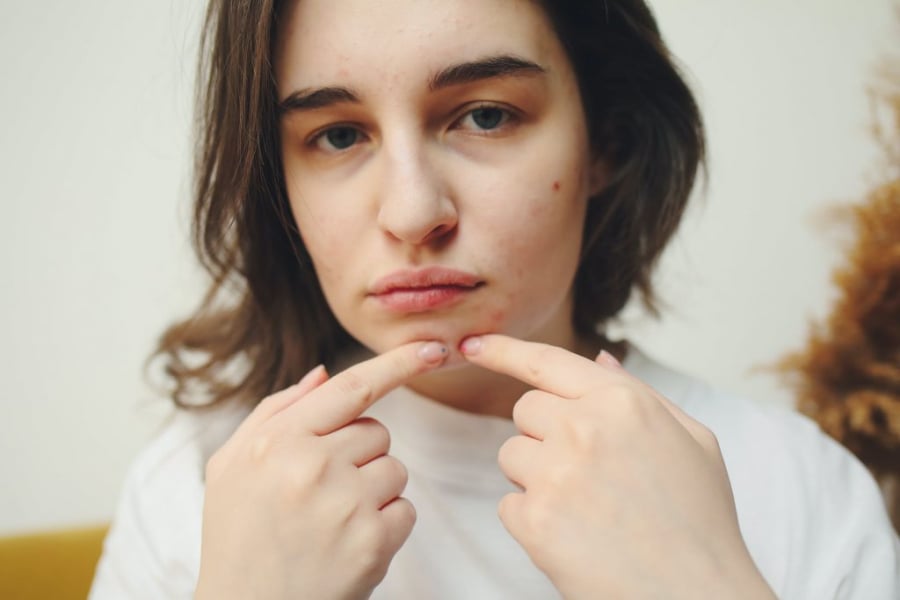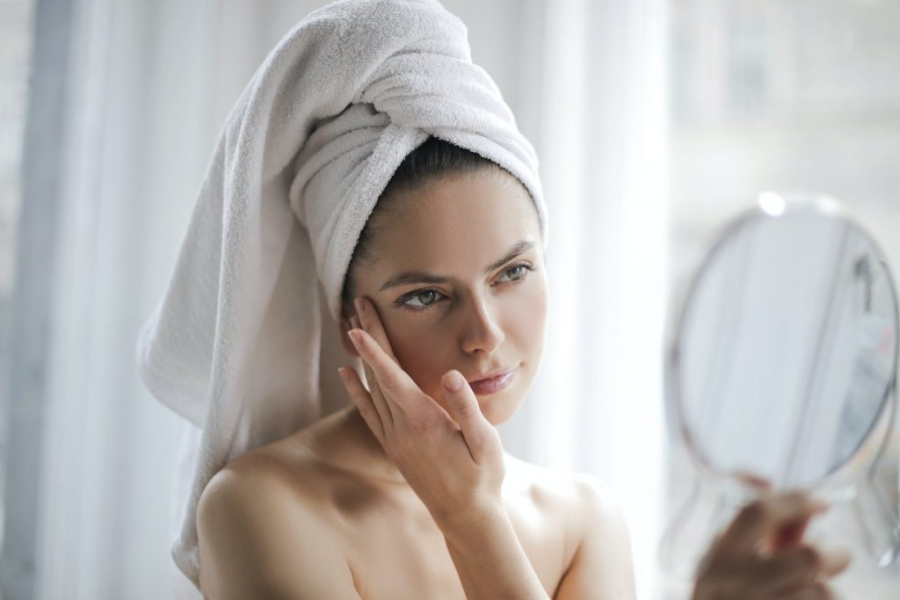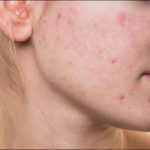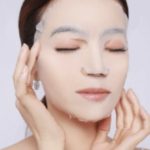Causes of Cosmetic Allergies
Cosmetic allergies occur when the skin develops acne, redness, itchiness, etc. when exposed to makeup or skincare products. Here are some factors that contribute to cosmetic allergies:
– Using products with unknown origins or counterfeit and low-quality items.
– Using cosmetics that contain ingredients unsuitable for the skin type.
– Using cosmetics with allergenic substances in their composition.
– Improper use of cosmetics: combining multiple products with interacting components that cause adverse effects.

Signs of Allergic Reactions to Cosmetics
Hot, Irritated Skin
The skin will start to feel hot and irritated within a few minutes of using cosmetics. The sensation of heat and irritation will gradually increase, along with itching, stinging, discomfort, and the area where cosmetics are applied will turn red. This often happens when you use cosmetics that contain cleansing agents or metals with strong irritant properties.
Acne Breakouts
Continuous itching, discomfort, heat, and redness are also experienced. When the skin is already damaged, you should avoid strong impacts like scratching or rubbing as they can cause more swelling and more severe acne, even larger pustules. This is a sign of a severe allergic reaction.
Increased Sebum Production
An increase in oily skin can also occur after being irritated by inappropriate makeup and skincare products. The cause of this is the ingredients in the cosmetics causing pore blockage or enlarging pores, leading to excess oil production.
Darkened Skin
After applying cosmetics, the skin gradually develops pigmentation, becoming darkened when exposed to sunlight, especially when you do not use sufficient sun protection. Although this is a difficult symptom to recognize, if you care about your skin, you will notice unusual signs after several uses of cosmetics.

Tips to Deal with Cosmetic Allergies
Cleanse the Skin
You should thoroughly cleanse your face with water and pat dry. You can also soothe the skin by applying cold compresses, which will help reduce redness and the stinging, itching sensation. Use a clean cloth dipped in cold water, then apply it to the irritated skin area, avoiding directly applying an ice cube to the face.
Discontinue Product Use
Discontinuing the use of cosmetics that cause allergies is necessary when you identify unfamiliar signs on your skin. You should also check the ingredients of the cosmetics you have used to find the cause of your allergies and avoid using them again.
Repair Damaged Skin
– Drink plenty of water: Water will help facilitate the metabolism, eliminate irritating factors from the skin, and provide better moisture for skin recovery.
– Maintain a healthy eating regime: Proper and scientific nutrition will provide nourishment to the skin.
– Limit exposure to sunlight, especially UV rays that can exacerbate skin irritation. You should use sunscreen during the day with mild products with appropriate SPF/PA levels.
- Hot, Irritated Skin: You will feel heat and irritation within minutes of applying the cosmetic product, along with itching, stinging, and discomfort. The affected area will also turn red.
- Acne Breakouts: Continuous itching, redness, heat, and discomfort are accompanied by acne, swelling, and pustules. This indicates a severe allergic reaction.
- Increased Sebum Production: Irritation from inappropriate makeup or skincare products can lead to blocked or enlarged pores, resulting in excess oil production and oily skin.
- Darkened Skin: Prolonged use of certain cosmetics can cause pigmentation changes, making your skin appear darkened, especially when exposed to sunlight without adequate sun protection.
- Cleanse Your Skin: Gently wash your face with water and pat it dry. Apply cold compresses to soothe the irritated skin, reduce redness, and alleviate itching and stinging sensations. Avoid direct ice cube contact with your skin.
- Discontinue Product Use: Stop using any cosmetic products that you suspect are causing the allergy. Identify the ingredients in these products to avoid future allergic reactions.
- Repair Damaged Skin:
- Drink plenty of water to facilitate metabolism, eliminate irritants from the skin, and promote hydration for skin recovery.
- Maintain a healthy diet to provide your skin with the necessary nourishment.
- Limit sunlight exposure, especially UV rays, as it can worsen skin irritation. Use mild sunscreen products with appropriate SPF/PA levels during the day.






































